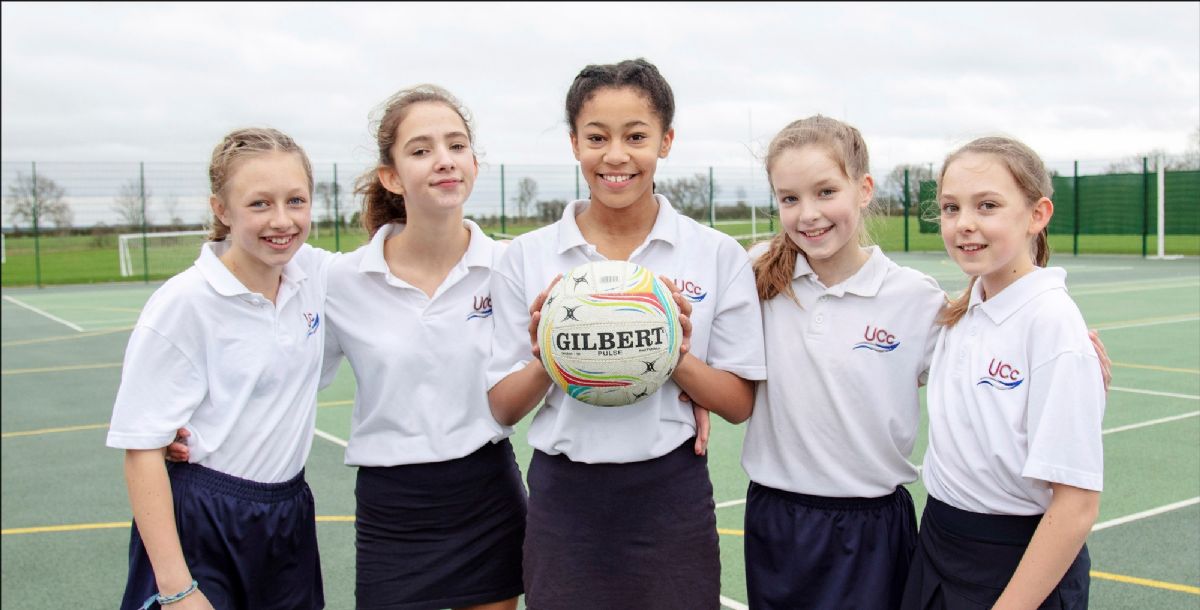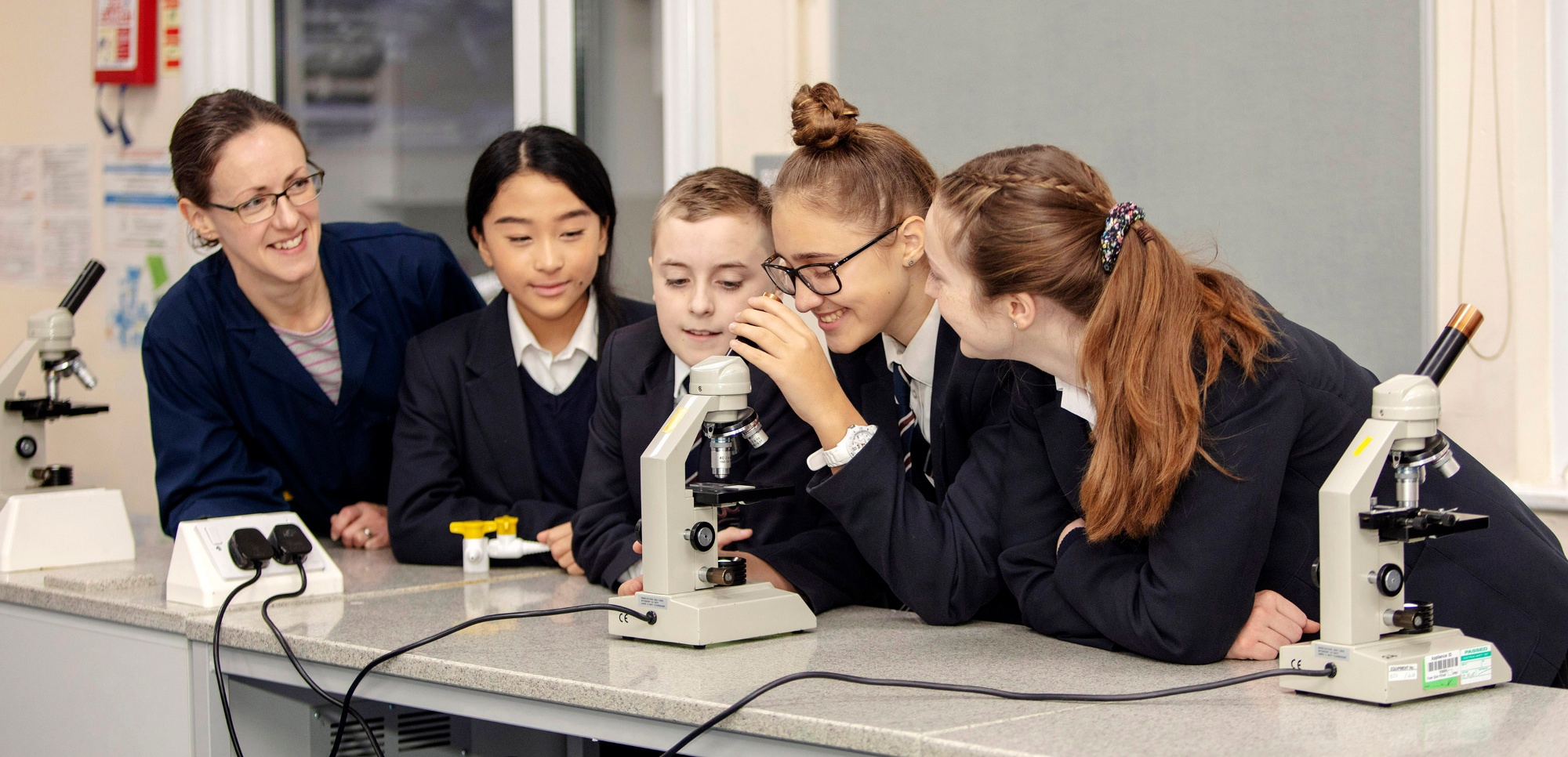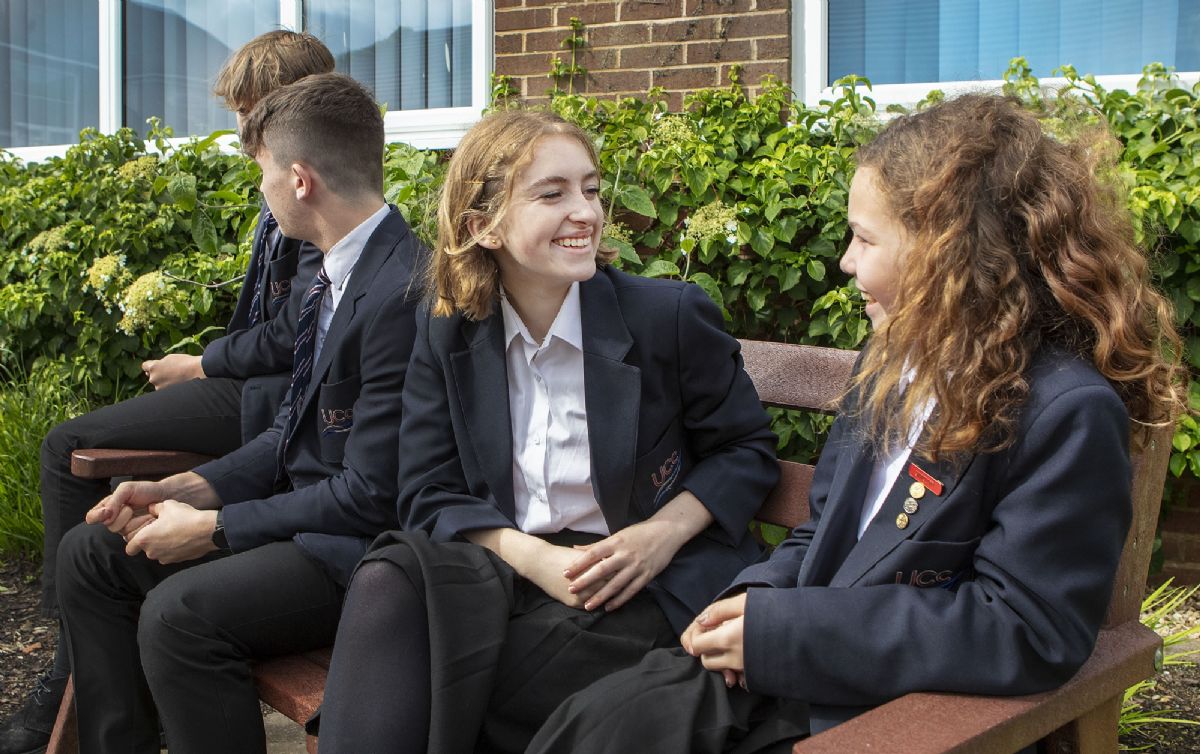PE
Physical Education Options at UCC
At UCC we have the privilege of being able to offer our students one of two examination PE courses. Please note, both examination courses are theory based with a combination of practical assessments that contribute to the student’s final grade. Students should choose one of our PE courses if they have a true passion for learning about sport, health and wellbeing, in addition to having the sporting ability to succeed in the practical element of each course. Both courses are timetabled with 6 lessons over two weeks in addition to their core PE allocation of 3 lessons over two weeks. If you wish to be considered for one of these courses, please choose PE as one of your choices on the options form.
GCSE Physical Education
Aims
The GCSE Physical Education course provides a platform for students to learn about a wide variety of scientific, sporting and health related concepts. Additionally, students will have the opportunity to showcase their practical abilities by completing assessments in 3 different sports. It is important that students are competing regularly at a good or high level outside of school. Further information on how the course is assessed and the theoretical components studied are shown below:
The course is divided into two sections:
-
Theory Content = 60% (Students sit two exams worth 60% of their final grade – 30% each)
1. Applied anatomy and physiology
2. Movement analysis
3. Physical training
4. Use of data
5. Sports psychology
6. Socio-cultural influences
7. Health, fitness and well-being
-
NEA Assessment = 40% (Practical assessment = 30% of the final grade & NEA Coursework = 10% of the final grade)
Students will be assessed in three different sports (one individual and two team sports or two individual and one team sport). Each sport is worth 10% of the students’ final grade and is assessed against criteria set by the exam board. Students are also required to produce a piece of analysis coursework, where they evaluate the strengths and weaknesses of their own performance in their main sport, this is worth 10% of their final grade.
Further Education and Career Opportunities
Completing the GCSE PE course provides a route to further education such as A Level PE, A Level Biology, BTEC Level 3 and other Level 3 diplomas. Studying academic PE can also lead to careers in coaching, teaching, sports and leisure management, sports development, sports marketing, physiotherapy, sports science, sports research and many other fields.
To be Successful on this Course you will need to:
-
Compete at a good or high level in at least one or two sports at club level.
-
Be confident with studying scientific theoretical components such as the body systems
-
Feel comfortable in an exam environment as 60% of your final grade is achieved through 2 exams in Year 11
-
Take responsibility for recording and uploading evidence for each of your 3 chosen sports
-
Be able to articulate themselves clearly when writing answers
Cambridge National Sports Studies
Aims
The Cambridge National Sport Studies course offers a variety of opportunities to learn about several contemporary sporting topics, whilst developing our students practical and leadership abilities in different sports. Students will develop a wide range of highly desirable, transferrable skills such as communication, problem solving, teamwork and leadership skills. Additionally, students will be required to work independently to complete assignments and submit work to meet deadlines.
Approach
Students will access 6 lessons across a two-week timetable in addition to their 3-lesson core PE allocation. These lessons will contain a mixture of practical lessons which will be used for practical assessment purposes in either two team sports, two individual sports or a combination of the two. Additionally, theory-based lessons will be used to complete coursework assignments across a range of topics.
Topics & Assessment
|
Topic |
Content |
|
Contemporary Issues in Sport (1 Exam – worth 40% of the final grade) |
You will learn about participation levels and barriers to completing sporting activities. You will also learn how participation is impacted by the promotion of values and ethical behaviour, about the role of high-profile sporting events, the role of national governing bodies and how technology is used within sport.
|
|
Performance & Leadership in Sport (5 assessments worth 40% of the final grade) |
You will develop your skills both as a performer and as a leader, in two different sporting activities, developing a range of transferable skills by planning and delivering a lesson. You will work both independently and as part of a team, including communicating with team mates as well as being in front of an audience when you perform. You will perform under pressure, both as a participant and as a leader, and will use your initiative to solve problems and make decisions. |
|
Outdoor Adventurous Activity (4 assessments worth 20% of the final grade) |
You will understand how to find out information about what opportunities there are in your local area as well as nationally in the UK for all different types of outdoor/adventurous activities. You will learn how to enjoy the activities safely by finding out what equipment, clothing, facilities and technology you need, as well as completing planning to help keep you safe. Topics include:
|
Grading
All results are awarded on the following scale: Level 2 – Distinction* (*2), Distinction (D2), Merit (M2), Pass (P2) Level 1 – Distinction (D1), Merit (M1), Pass (P1) and Fail/Unclassified.
The course is divided into two sections:
-
Theory Content and NEA Assessment = 65% of the course (Students sit one exam worth 40% of their final grade & NEA Coursework worth 40% of final grade)
-
Practical = 35% of the course (Practical assessment = 20% of the final grade)
Further Education and Career Opportunities
By studying the Cambridge National Sports Studies course, students will be provided with an excellent start for vocational study and enable progression to Level 3 vocational qualifications, such as other Cambridge Technical Awards, A Levels or Apprenticeships. Studying academic PE can lead to careers in coaching, teaching, sports and leisure management, sports development, sports marketing, physiotherapy, sports media and many other fields.
To be Successful on this Course you will
-
Compete at a good or high level in at least one sport at club level.
-
Represent the College at minimum one sport.
-
Be well organised and consistently meet coursework deadlines
-
Be able to work independently
-
Be able to respond to feedback to improve practical performances and coursework
-
Prefer regular coursework based assessments instead of traditional examinations
-
Be competent using online platforms such as Word, PowerPoint and the Internet



